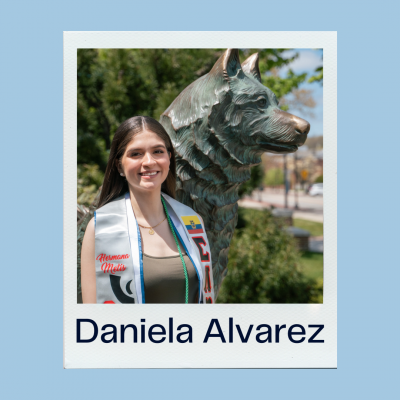 While studying Political Science and Latin American studies at the University of Connecticut (UConn), Daniela was exposed to numerous courses that focused on public service. The impact on communities of color helped foster for her commitment to service.
While studying Political Science and Latin American studies at the University of Connecticut (UConn), Daniela was exposed to numerous courses that focused on public service. The impact on communities of color helped foster for her commitment to service.This academic year Daniela serves as a Racial Justice Workgroup intern with the Connecticut Department of Children and Families (DCF). As part of her Internship and Professional Practice (IPP) placement, Daniela works on data analysis with a focus on the disproportionality and disparity rates between the CT Child Population and DCF Child population. Her analysis also requires her to present the analyzed data to stakeholders in the DCF system including social workers, partners and the Commissioner.
Outside of her IPP experience, one of Daniela’s favorite SPP opportunities has been taking PP 5325: Labor-Management Relations, Negotiation & Contract Management with Adjunct Professor Gregg Adler. During this class Daniela participated in a mock arbitration exercise. She explains, “As someone who was not very well-versed in labor management, it was a fun way to get involved and learn about arbitration. Also, we were able to take on different roles within the exercise and Professor Adler let us determine what questions and answer we could give as the mock employees and executives.” Experiential learning is at the heart of SPP’s curriculum and for student’s like Daniela they provide exposure to new opportunities and ideas.
After graduation Daniela hopes to work in the field of racial justice or social work. She explains, “My main goal has always been to one day work with migrant communities and help with their integration into life here and providing them with the resources necessary to thrive in our society.” We wish Daniela and the Class of 2023 all the best and can not wait to see their continued IMPACT!